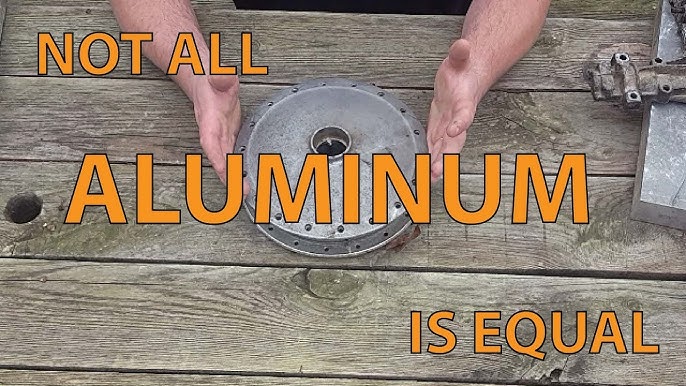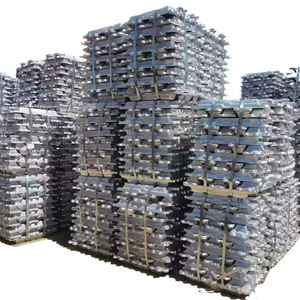Alcast Company - The Facts
Alcast Company - The Facts
Blog Article
Not known Facts About Alcast Company
Table of ContentsAlcast Company Fundamentals ExplainedFascination About Alcast CompanyThe Best Guide To Alcast CompanyAlcast Company Fundamentals ExplainedThe 30-Second Trick For Alcast CompanyRumored Buzz on Alcast Company
The subtle difference hinges on the chemical material. Chemical Comparison of Cast Aluminum Alloys Silicon promotes castability by reducing the alloy's melting temperature and improving fluidness throughout spreading. It plays a vital duty in permitting elaborate mold and mildews to be filled precisely. In addition, silicon contributes to the alloy's strength and use resistance, making it valuable in applications where durability is important, such as auto components and engine elements.It also enhances the machinability of the alloy, making it much easier to refine right into completed products. In this method, iron contributes to the general workability of light weight aluminum alloys. Copper increases electrical conductivity, making it helpful in electric applications. It also enhances corrosion resistance and adds to the alloy's overall strength.
Manganese adds to the toughness of aluminum alloys and boosts workability (aluminum casting manufacturer). It is generally made use of in wrought aluminum products like sheets, extrusions, and accounts. The presence of manganese help in the alloy's formability and resistance to breaking during construction processes. Magnesium is a light-weight element that provides toughness and effect resistance to light weight aluminum alloys.
The 6-Second Trick For Alcast Company
It allows the production of lightweight elements with excellent mechanical buildings. Zinc boosts the castability of aluminum alloys and assists manage the solidification procedure during spreading. It boosts the alloy's stamina and hardness. It is typically found in applications where intricate forms and great details are essential, such as attractive castings and certain automobile parts.

The primary thermal conductivity, tensile stamina, yield strength, and elongation vary. Select suitable raw products according to the performance of the target product generated. Amongst the above alloys, A356 has the highest possible thermal conductivity, and A380 and ADC12 have the most affordable. The tensile limitation is the opposite. A360 has the most effective yield toughness and the greatest elongation rate.
The Of Alcast Company

In precision casting, 6063 is well-suited for applications where complex geometries and high-grade surface area finishes are extremely important. Examples include telecommunication enclosures, where the alloy's remarkable formability allows for sleek and aesthetically pleasing designs while keeping architectural honesty. In the Lighting Solutions market, precision-cast 6063 elements produce elegant and efficient lights fixtures that call for complex forms and excellent thermal performance.
The A360 displays premium elongation, making it suitable for facility and thin-walled parts. In accuracy spreading applications, A360 is appropriate for industries such as Customer Electronics, Telecommunication, and Power Tools.
Some Known Details About Alcast Company
Its distinct residential properties make A360 explanation a useful choice for accuracy casting in these markets, boosting item durability and top quality. Aluminum alloy 380, or A380, is an extensively used casting alloy with several distinctive attributes. It offers excellent castability, making it a perfect selection for precision casting. A380 shows excellent fluidness when molten, making sure intricate and detailed mold and mildews are accurately replicated.
In accuracy casting, light weight aluminum 413 beams in the Consumer Electronic Devices and Power Devices industries. It's frequently made use of to craft detailed components like smartphone housings, camera bodies, and power device housings. Its accuracy is amazing, with limited tolerances approximately 0.01 mm, making certain perfect product setting up. This alloy's superior corrosion resistance makes it an outstanding selection for outside applications, making sure resilient, sturdy products in the mentioned markets.
The smart Trick of Alcast Company That Nobody is Talking About
The aluminum alloy you select will considerably influence both the casting process and the properties of the last product. Since of this, you have to make your decision carefully and take an educated technique.
Establishing the most ideal aluminum alloy for your application will indicate considering a broad selection of qualities. These comparative alloy qualities follow the North American Pass Away Casting Organization's standards, and we've separated them right into two groups. The first classification addresses alloy qualities that influence the production process. The 2nd covers qualities affecting the properties of the end product.
The smart Trick of Alcast Company That Nobody is Talking About
The alloy you pick for die spreading directly impacts a number of aspects of the spreading procedure, like how simple the alloy is to function with and if it is vulnerable to casting defects. Hot breaking, likewise known as solidification splitting, is a common die spreading flaw for light weight aluminum alloys that can result in interior or surface-level splits or fractures.
Particular aluminum alloys are extra susceptible to hot splitting than others, and your selection needs to consider this. It can damage both the cast and the die, so you ought to look for alloys with high anti-soldering buildings.
Deterioration resistance, which is currently a significant feature of light weight aluminum, can differ significantly from alloy to alloy and is a crucial particular to take into consideration depending on the ecological problems your item will certainly be subjected to (Aluminum Casting). Wear resistance is another home typically sought in light weight aluminum products and can separate some alloys
Report this page